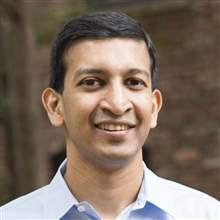For generations, economists relied on abstract models that described, often with great precision, how people make economic choices. These models assumed that people are rational, have great willpower and are essentially selfish. Behavioral economics, influenced by psychology, sprang from the observation that these models often fail to explain how consumers, savers and as investors actually make decisions. We are often short-sighted. We tend to overreact to new information. Our choices depend on the order in which they are presented to us. And, to a surprisingly extent, we are predictable.
Advertisers have long understood the importance of all this. They know that consumers react differently to a $4.99 price tag than to a $5.00 one. Public policymakers around the world also have grasped the importance of what’s been dubbed “nudge,” the art and science of presenting information and choices in ways that influence individuals’ decisions. Once upon a time, workers had to fill out a form (opt-in) to enroll in an employers’ retirement savings program; now, it’s common for the workers to be automatically enrolled and given the opportunity to opt-out. The result: More workers taking advantage of employers’ retirement savings plans. The General Services Administration discovered that simply asking contractors to sign their names at the top of a self-reporting form increased the accuracy of the forms.
What else can policymakers learn from behavioral economics? We’ve invited several of the researchers in the field to answer that question at a conference on Friday, Sept. 18. After keynote remarks from Raj Chetty, we’ll hear about ways that employers can get workers to improve their health and increase retirement saving and governments can boost labor force participation and improve the quality of health care. We’ll also hear about how taxpayer confusion can lead to poor choices in health insurance and work effort.
Join us for the webcast here.
Keynote Address |
|
 |
Raj Chetty
Raj Chetty is a Professor of Economics at Stanford University. Chetty’s research combines empirical evidence and economic theory to help design more effective government policies. His work on tax policy, unemployment insurance, and education has been widely cited in media outlets and Congressional testimony. His current research focuses on equality of opportunity: how can we give children from disadvantaged backgrounds better chances of succeeding? Chetty is a recipient of a MacArthur “Genius” Fellowship and the John Bates Clark medal, given by the American Economic Association to the best American economist under age 40. He received his Ph.D. from Harvard University in 2003 at the age of 23 and was a professor at UC-Berkeley until 2009, when he returned to Harvard as one of the youngest tenured professors in Harvard’s history. Chetty moved to the Department of Economics at Stanford in 2015. |
|
For a full list of speakers and agenda, see the event page. |
|



Commentary
Big ideas from behavioral economics: Experts discuss the power of the nudge
September 15, 2015